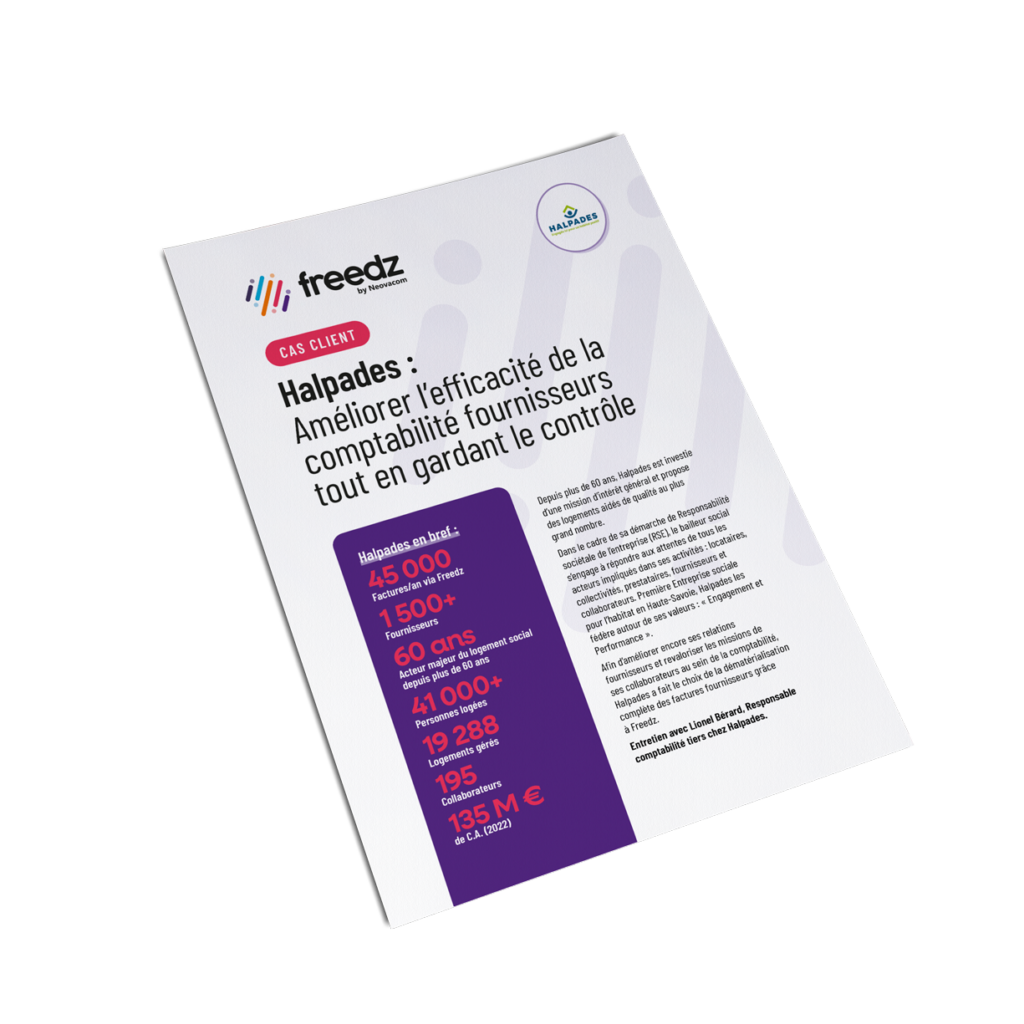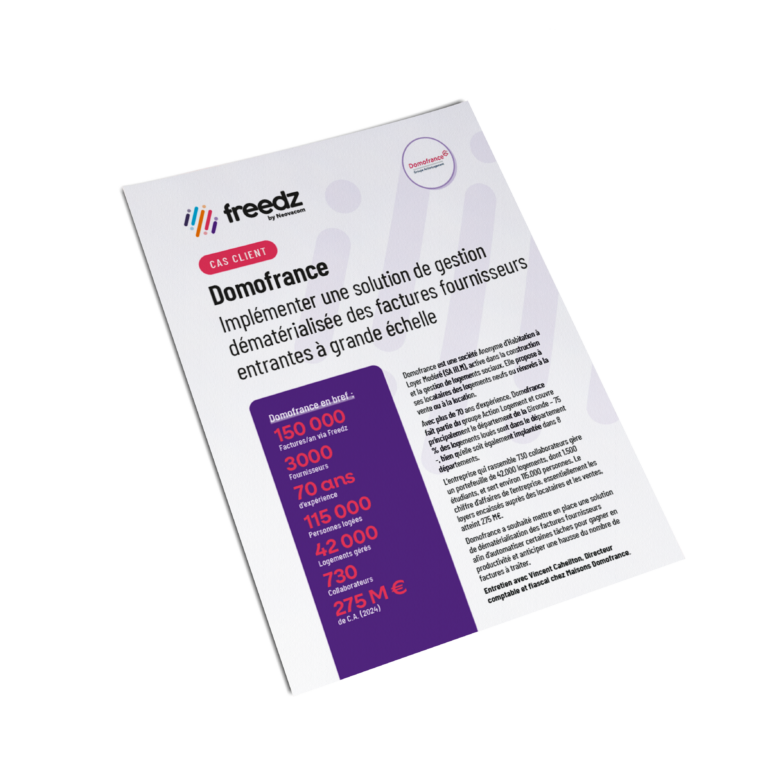Halpades
Improve accounts payable efficiency while maintaining control
For more than 60 years, Halpades has been invested with a mission of general interest and offers quality assisted housing to the greatest number of people.
As part of its Corporate Social Responsibility (CSR) approach, the social landlord undertakes to meet the expectations of all the players involved in its activities: tenants, communities, service providers, suppliers and employees. As the first Social Enterprise for housing in Haute-Savoie, Halpades unites them around its values: "Commitment and Performance".
In order to further improve its supplier relations and enhance the value of its employees' missions within the accounting department, Halpades has chosen to completely dematerialise its supplier invoices thanks to Freedz.
Interview with Lionel Bérard, Third-Party Accounting Manager at Halpades.
Why did you set up this project?
Before Freedz and before containment, we received 100% of our invoices in paper format. These invoices were sorted, scanned via an ADP tool and then we had to check the results of the video coding before we actually started processing the invoices.
Clearly, these are tasks with very little added value for us and we wanted to remove them. We have 4 employees in Accounts Payable and one person was exclusively dedicated to this. The aim is to be able to upgrade the tasks of this person. For example, to develop supplier payment monitoring and be more proactive in implementing direct debit whenever possible.
Another very important point for Halpades is the respect of payment deadlines. Although we're already pretty good at meeting deadlines, a tool like Freedz needs to confirm our deadlines and improve them even more. This is a point on which we have put in place indicators that we particularly monitor.
What drove you to take the step?
During the containment, in order to be able to continue our activities, we had asked our suppliers to send us the invoices by e-mail. However, this was an obstacle for our largest suppliers, such as Dalkia, who send us several thousand invoices a year and for whom e-mail is unsuitable.
We therefore chose to launch the Freedz project, first to meet the needs of this large supplier.
And since this first supplier, how do you see the future?
Since June and the launch of Freedz, we have received more than 1,600 invoices from Dalkia and are gradually starting to add new suppliers.
We want to control our evolution towards 100% electronics. It's something that Freedz allows and that we appreciate. In order not to be overwhelmed in this process, we can choose the suppliers who can invoice us via the platform. This allows us to make sure that our whole process is working well and to gradually increase the load, while keeping control.
How do you plan to convince your suppliers to use Freedz?
We plan to include Freedz as a billing address in future tenders to ensure that our suppliers use this channel in the future.
But not to hide anything from you, today suppliers are asking us to use Freedz. We're the ones who have to stop them to control the flow. The fact is that those who have already used Chorus in working with the public have seen the benefits. So they were very keen to use Freedz as soon as they became aware of it.
What benefits do you see from using Freedz?
As I was saying, the first benefit is that we retain control over the progress of our dematerialization, and this is an important point for us.
Then, for all invoices going through Freedz, we've completely eliminated the time-consuming tasks I was telling you about. This is a major productivity gain! The other positive point that we hadn't imagined was the quality of PDF re-materialization. Before, our LAD was based on scanned images which could be illegible, so we had to go back and correct the information. Now we receive electronic invoices, so PDF rematerializations are of very high quality when we need them.
Another important functional benefit is that we can make the commitment or contract number mandatory on invoices, which greatly facilitates processing. We appreciate this, as the commitment is already present in our information system, so reconciliation is automatic and easier. Today, we no longer receive invoices without this number, as they are automatically rejected.
Finally, support and relations with the WSC are good. The product is constantly evolving and our functional needs are taken into account and arrive quickly. That's also a good side!

Download this case study as a PDF
How Freedz helps its customers' management
From administration and finance to IT and real estate, our customers tell us why they chose Freedz.
RATP Habitat – Manage incoming billing with a single point of entry and eliminate paper formats
Logeo Seine – Responding to a sharp increase in incoming invoices and preparing for reform
